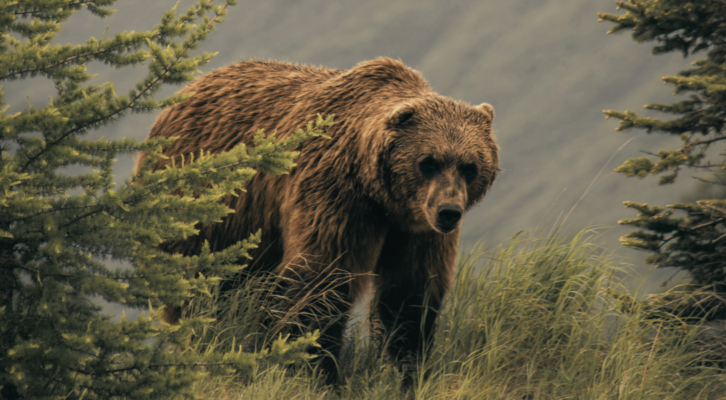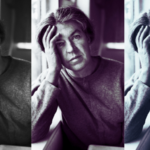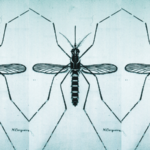On June 1, Sisters in Crime (SinC) opened submissions for their 2022 Pride Award for Emerging LGBTQIA+ Crime Writers, a $2,000 grant awarded to one-up-and-coming writer who identifies as part of the LGBTQIA+ community. In addition to the selected winner, five runners-up will also be awarded a one-year Sisters in Crime membership, as well as a critique from an established Sisters in Crime member, so if you have been thinking about submitting your writing for consideration, the time is now! SinC will be accepting applications through July 31.
Today, we’re speaking with two of the 2022 award judges, Leslie Karst and Brenda Buchanan to find out why the Pride Award is so important and the benefits of applying.
Why is the SinC Pride Award important to the LBGTQUIA+ community, and how can it help writers?
Brenda Buchanan: The Pride Award is a testament to the importance of authentic voices in crime fiction. For many years, queer writers who wrote stories celebrating our rich and wonderful culture had limited options to get published. That’s not as true as it used to be, but it’s still a significant issue. This award’s an important signal to writers, agents and acquiring editors that books with LGBTQ+ characters and themes shouldn’t be considered a niche market. Good books are good books, and they will sell.
Leslie Karst: We can’t have diversity in our community without authors who will write the books! It’s a sad fact that there are still few queer authors published by the traditional crime fiction press, and among those books which do make it into print, even fewer have queer protagonists. The SinC Pride Award not only gives up-and-coming queer writers a platform by which to be heard (and seen and read), but it will also hopefully inspire those who do not currently see themselves portrayed in crime fiction to go ahead and write their story.
Why are you excited to judge this event?
LK: I’m honored to have been asked to judge the Pride Award submissions and be able to assist in this fabulous new project. I’m also thrilled at the prospect of reading and discovering new voices and talent in our community.
BB: There are so many great queer authors writing compelling crime stories that incorporate all the beauty and complexity of being LGBTQUIA+ in a world where marginalization and discrimination are ongoing issues. I applaud my queer siblings for their vision and courage and look forward to reading some wonderful work.
What has your writing experience taught you about how this award could benefit a recipient?
BB: The Pride Award is a powerful signal that our life experience matters, that our voices matter, and there’s no need to shy away from writing characters (heroic and nefarious) who reflect our lives.
LK: When I started writing my first mystery novel, I never seriously considered making my main character a lesbian, as I knew the chances back then of finding a publisher for a queer-centered cozy were miniscule. As far as I was aware, no such book existed. But had there been a Pride Award at that time, I might have rethought this and gone ahead with it.
When did you make your debut as an author, and how have you seen the publishing landscape change since then?
LK: My first Sally Solari mystery was published in 2016, and in that six years the industry has become increasingly diverse, publishing more and more books by BIPOC authors, and even a few with queer protagonists, too! So there’s definitely been an improvement. But c’mon, folks, we can do better!
BB: My first book, QUICK PIVOT, came out in 2015. My three-book Joe Gale series has a straight protagonist but there are queer characters and themes in each book. I’m now working on a new series with a lesbian protagonist. I might well have written this character earlier had she come to mind. But Joe showed up first.
There’s been something of a sea change in recent years, for which I want to acknowledge not only queer writers but also straight allies. For example, S.A. Cosby’s RAZORBLADE TEARS features the fathers of two gay men who were murdered in a homophobic attack. It brings home the tragedy of anti-gay bigotry as well as anything I’ve ever read, and Shawn deserves every accolade he’s received for this incredible book.
Have you personally faced any challenges in your career that felt specific to LBGTQUIA+ authors?
BB: Booksellers and librarians tend to be thoughtful, progressive people, and I’m fortunate to live in Maine, where the political and social climate welcomes LGBTQUIA+ voices. I can’t say for sure that I have, but bias is not always overt, right?
LK: I mentioned earlier that I made the protagonist of my Sally Solari series straight, primarily out of fear that I wouldn’t secure an agent or publisher if I wrote a lesbian protagonist for a cozy mystery. So, yes. However, as an author, I’ve been lucky never to face any challenges because of being an out lesbian. The crime-writing community—and my publishers—have always been exceedingly friendly and helpful to me.
What do you think is the biggest obstacle when it comes to diversifying mystery and crime fiction?
LK: Publishers refusing to take a chance on books with queer protagonists. Sure, there are lots of gay side-kicks, but my feeling is that traditional publishers are still afraid that straight readers won’t be drawn to books with a queer main character—especially in the light and cozy mystery genre.
BB: Lingering tokenism, the notion that there’s only room on the prime shelves in bookstores for a few books featuring LBGTQUIA+ characters (and also only a few books by Black, Latino/a and Asian writers) because for the most part, the reading public wants to read about straight, white people. If that was true—and I don’t think it was—it’s not true now. But old habits are hard to break and some folks in the industry still haven’t adjusted to reality.
Do you think the Sisters in Crime Pride Award may have helped assist or avoid some of these obstacles?
BB: The Pride Award signals that LGBTQUIA+ voices in crime fiction aren’t a fad – as the chant goes, we’re here, we’re queer and we’re not going anywhere. It confers credibility to writers and encourages broader recognition of queer voices in crime fiction.
LK: I’m hoping that, by encouraging new writers in the queer sub-genre, the SinC Pride Award will result in more books out there in the future. And the more they become normalized, the more we’ll continue have. What’s the opposite of a vicious circle—a loving cycle?
Why are grants and mentorship so important to getting an author’s career started? Who is someone that you’d like to thank for giving you a leg up in your own career?
BB: It’s hard to make a living as a writer. Financial assistance to support emerging writers on their journey to publication is precious.
One person I would like to single out from all of those who have supported and mentored me is the incomparable Sherry Harris. The Pride Award is her legacy, of course. When she was president of Sisters in Crime she met with LGBTQUIA+ writers to ask about the obstacles and challenges we face. She and I had a wide-ranging conversation about it at New England Crime Bake, and I know she had similar discussions with many others. The Pride Award is the result, and it’s a testament to her vision and can-do attitude. Sherry Harris is an absolute hero.
LK: More than anything, grants and mentorship provide to up-and-coming authors that all-important knowledge that others believe in their work. Sure, the money, beta-reading, and editing all help, but the knowledge that others whom you respect in the community truly have faith in you as an author is invaluable. It’s what keeps you motivated to finish your manuscript and then have the confidence to send it out to agents and publishers.
I came up in the business pretty much on my own, without a mentor to guide me along the way as I wrote my first mystery. But I would like to give a big shout-out to my agent, Erin Niumata, for her initial and continued belief in me and my books, and to Sisters in Crime, who—once I discovered them—provided me an invaluable entrée into their amazingly warm and generous community of crime writers.
What kind of queer stories do you find are underrepresented in the crime fiction / mystery genre?
BB: Stories involving older queer folks. Our world has changed so much in my lifetime. I’m ruminating on how to bring all that lived experience into my fiction.
LK: Lesbian stories! Especially in the light traditional/cozy genres. And stories with older (50+) queer characters as protagonists.
Although progress has been made in the realm of diverse and LBGTQUIA+ stories in crime fiction publishing, what changes are you still hoping to see?
BB: More books with complex, complete LGBTQUIA+ characters of all ages, races, shapes and sizes. I want to see more like Cheryl Head’s wonderful Charlie Mack, a Black lesbian PI with smarts and sass, John Copenhaver’s terrific historicals featuring fascinating queer characters, and absolutely more transgender protagonists, like Dharma Kelleher’s Jinx Ballou and Robyn Gigl’s Erin McCabe.
The best LGBTQUIA+ characters illustrate a central fact about queer people. We are in many ways, just like straight people, but in some very important ways, not like straight people at all. We have experienced the searing pain of bigotry and made the choice to live openly—to be out—despite the very real risks of losing family and jobs and in some cases, our lives. That reality informs the best queer crime fiction, and I applaud the writers who dig deep and put it on the page, whether they are writing a thriller or a cozy. Queer lives involve risk, and crime fiction is all about risk. It’s a natural pairing, and when done well, it’s powerful.
Are there early LBGTQUIA+ authors in the annals of crime fiction that you find particularly inspiring?
BB: Oh, there are so many. The great Ellen Hart for her Jane Lawless books. Katherine V. Forrest, who created Kate Delafield. The incredible Henry Rios books by Michael Nava. Laurie King’s Kate Martinelli series. Everything Val McDermid has ever written, regardless of whether lesbians are in central or supporting roles. Sandra Scoppetone for both her adult and young adult books with terrific, well-drawn lesbian characters.
LK: I was a big fan back in the 1980s of Katherine V. Forrest’s Kate Delafield mysteries. But, of course, they were published by Naid, a lesbian press, so few outside the gay culture likely knew of them.
Can you recommend a book by an LBGTQUIA+ writer out this year?
BB: Two, actually.
Anthony Bidulka, a marvelous Canadian writer, has a new book out called GOING TO BEAUTIFUL that’s getting rave reviews. I’ve not read it yet, but I’ve loved every other book he’s ever written so I look forward to diving into it when I have a bit of uninterrupted reading time.
Kelly J. Ford’s REAL BAD THINGS will be out the first of September. Kelly writes about not only gender and sexuality, but social class as well. Her work is brilliant and compelling. I cannot wait for this book.
LK: I loved Rob Osler’s “quozy,” Devil’s Chew Toy. It’s so great to read a fun, witty, and clever cozy with predominantly queer characters. Kudos to Crooked Lane for publishing it.
BIOS:
Leslie Karst is the author of the Lefty Award-nominated Sally Solari culinary mystery series. The daughter of a law professor and a potter, she waited tables and sang in a new wave rock band before deciding she was ready for “real” job and ending up at Stanford Law School. It was during her career as a research and appellate attorney in Santa Cruz, California, that Leslie rediscovered her youthful passion for food and cooking and once more returned to school—this time to earn a degree in culinary arts.
Now retired from the law, Leslie spends her time cooking, cycling, gardening, singing alto in her local community chorus, and of course writing. She and her wife and their Jack Russell mix split their time between Santa Cruz and Hilo, Hawai‘i. Visit her at LeslieKarstAuthor.com
Brenda Buchanan sets her crime novels in Portland, Maine. Her Joe Gale series features a newspaper reporter with modern media savvy who covers the Maine crime beat. Drawing on her years of experience as an attorney, Brenda is now working a series featuring a lawyer whose passionate defense of her clients leads her deep into the rough-and-tumble world of Downeast crime. LGBTQ folks have leading roles in Brenda’s books, just as they do in her life. FMI: http://www.brendabuchananwrites.com

















